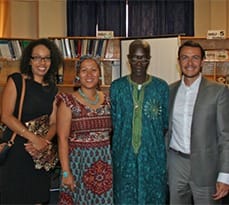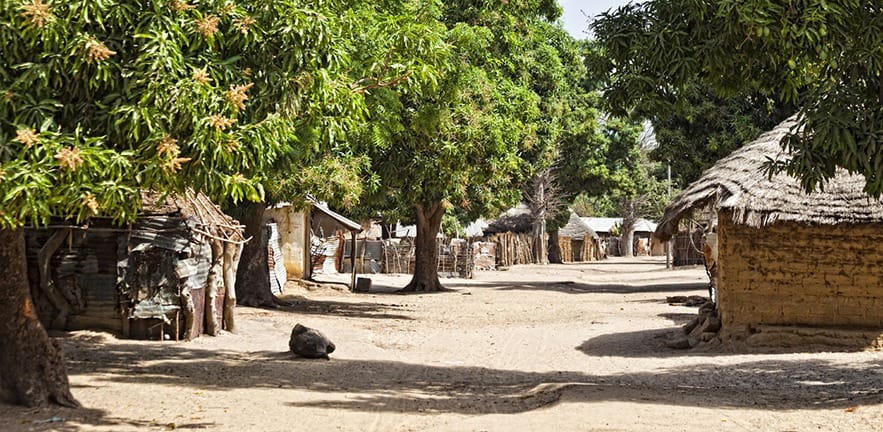“There are aspects about our industry that we don’t think are done the right way. Every commodity trading company will be involved in corporate social responsibility (CSR) projects, but operations and social responsibility are often managed as separate entities. This is because CSR has often been added much later in the life of the firm,” Maria says. “We thought that this isn’t the right way to do it if you’re really committed to social responsibility.

Investment & Export Promotion Agency
Maria-Yassin Jah, Luis Prazeres and a third EMBA alumnus are using their commodities backgrounds and the network they grew at Cambridge Judge to create their own business, Aspuna Group, with social responsibility at its heart.
“Aspuna Group will not have a social responsibility department because it is embedded in our DNA. We check everything we do against our values and everyone who comes on board will have to subscribe to these values and act them out in everything they do.”
Aspuna has started their first project in The Gambia. They are working with the Gambian government and the UN’s Food and Agricultural Organisation to establish local farming cooperatives who will supply them with Cassava (also known as Tapioca). The crop will then be processed into starch and flour in an Aspuna-built and owned factory. Maria says: “Our operations model will be based on having physical assets because [they] add value to the exported product and also create employment.” Aspuna will then sell the processed starch locally as a food staple and to international pharmaceutical and food companies. “There are some pockets in the country where people are malnourished [and] the region that we are starting in is a priority region.”
Their factory is now being built and will employ around 20 people in January 2016. Aspuna is working with the National Women’s Bureau to identify women farmers and to train them on aspects of the processing line; the Group aims to have the line solely managed by women. In a traditional farming society where Gambian women carry their children on their backs to work the fields, the factory will provide a nursery.
Aspuna is also exploring green energy solutions for their factory and is working with the government to bring electricity, water and sewage pipes to the local area. Luis says: “This is the social aspect that we really want to push with this company. We’re creating a lot of excitement among the government because [Aspuna] can change many lives in rural Gambia.” And they’re moving fast; Aspuna hopes to have its first bag of starch for export by the end of Q1 2016
“This is a dream of mine,” says Luis. “Creating my own firm was something that I always had in the back of my mind. I used the EMBA to learn about starting a business and to find partners.” Maria on the other hand, didn’t know that she wanted to start her own business until towards the end of the programme. “I realised that I might need 15 years of industry experience to move into a position that would allow me to combine my interests, experiences and skills into something I’d find enjoyable. So I thought that this is the perfect opportunity to start something that I can be 150 per cent behind.”
They both agree that the EMBA was a life changing experience. Luis says: “You can use the experiences from the EMBA there and then when you’re negotiating, looking at pricing or doing a model, looking at strategy, innovation fundraising… we covered all of these things on the EMBA programme.”
Now that the company has its feet off the ground in The Gambia, what’s next? “We will initially focus on Africa and the softs or agricultural markets before expanding our portfolio to include energy and metals products across other regions,” Luis says. “In a few years, we’d like to compete with the big companies in the commodity space. I think the sky’s the limit.”


